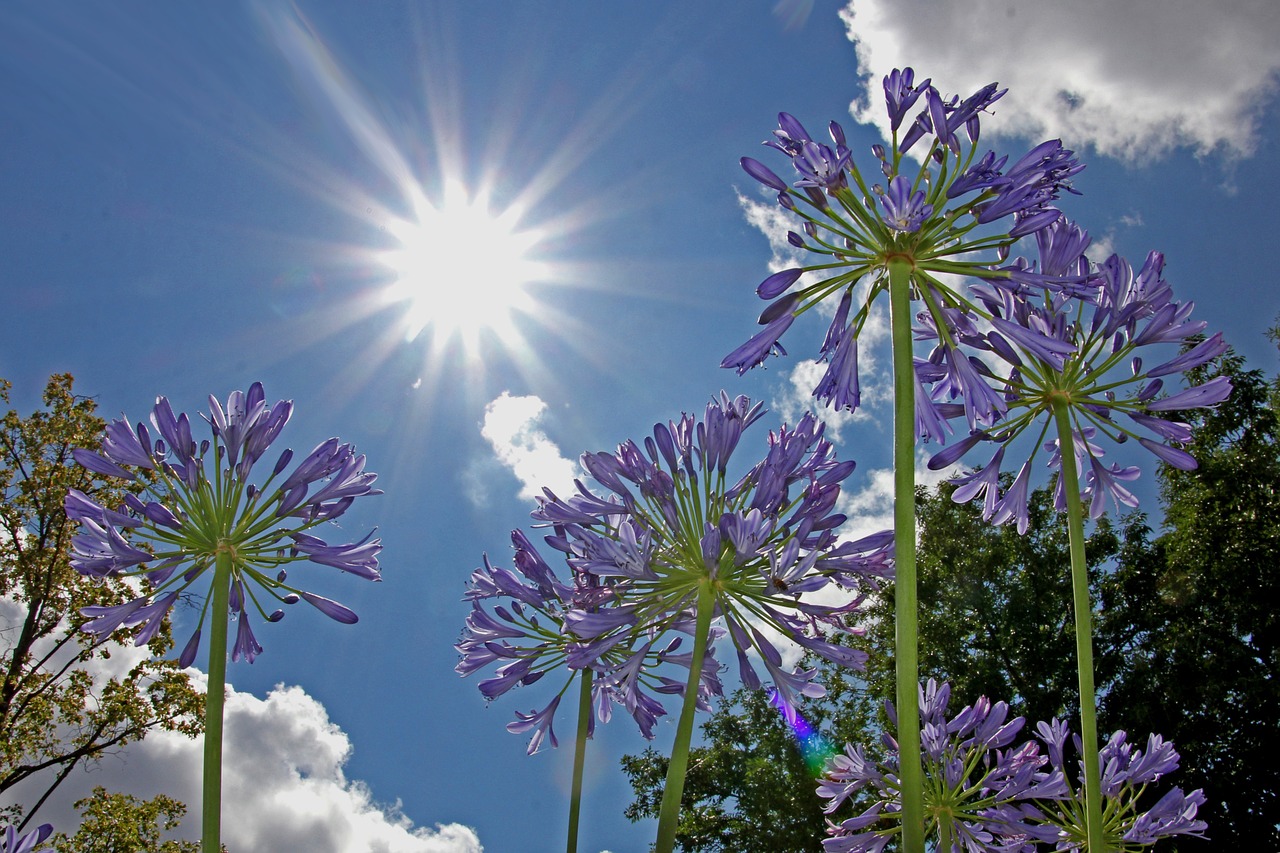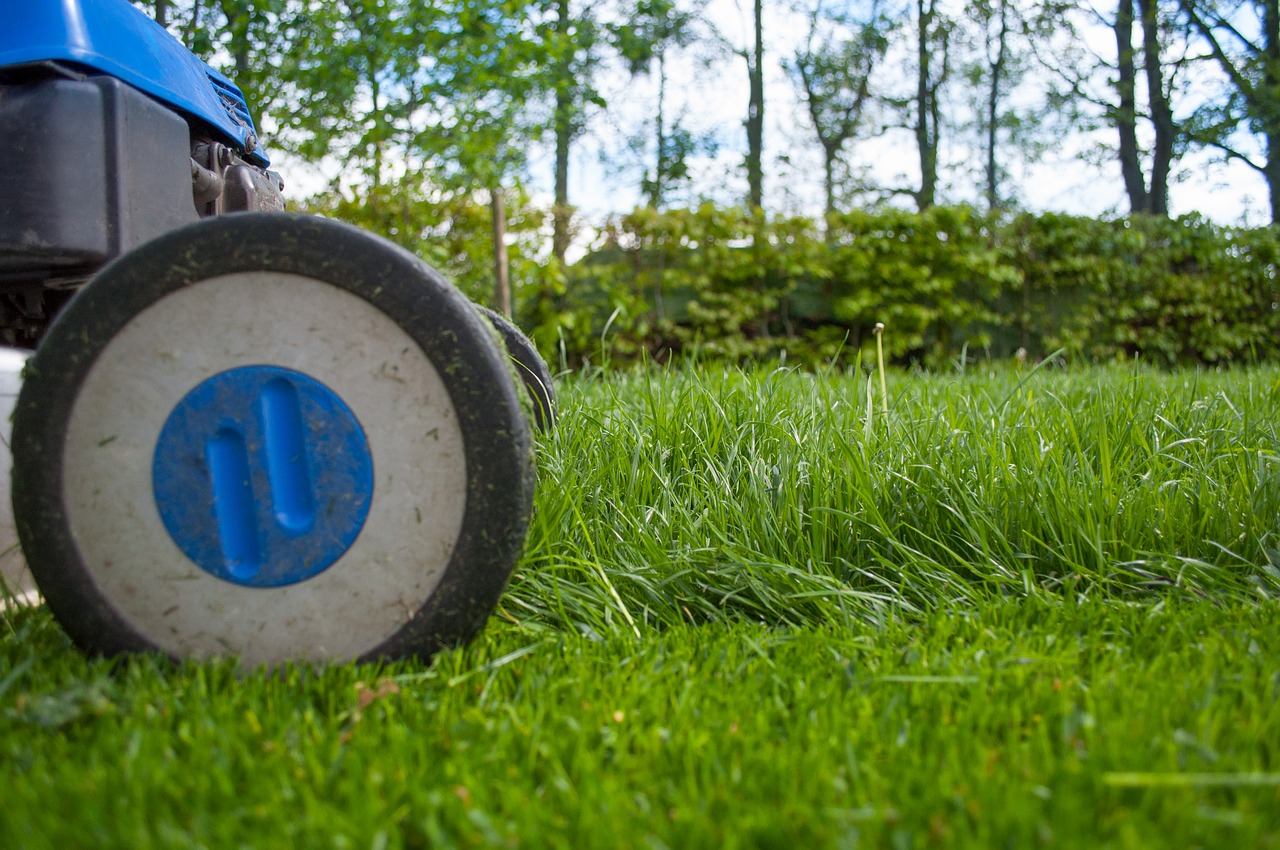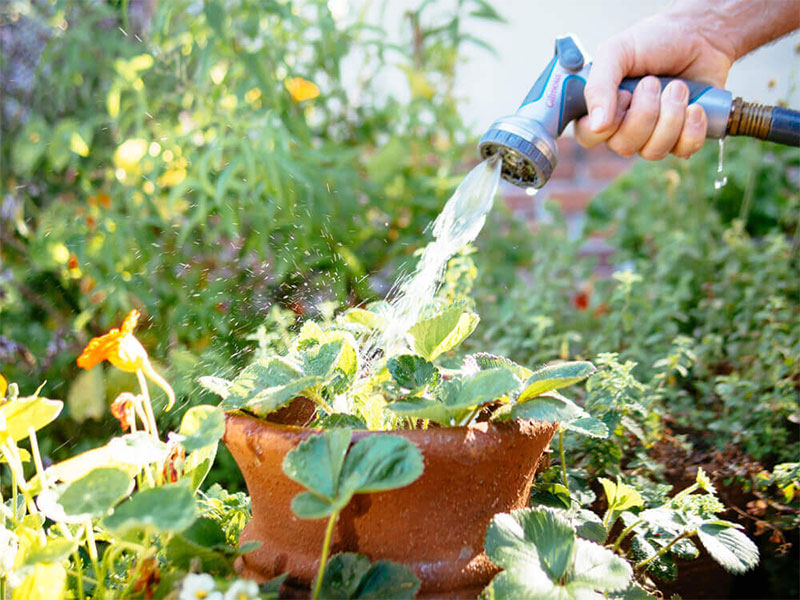If you have a flourishing garden or lawn, then you know that the scorching summer heat can be tough on your plants. Most vegetable crops and shrubs can tough out extreme heat without needing much intervention from humans. However, shallow-rooted plants can barely withstand heat waves. If left on their own, they can easily lose their strength and slowly dry away.

Fortunately, there are several clever yet simple tricks that can help your garden survive the heat and keep it growing. Read on to find out expert gardening tips to protect your plants during hot weather. If you have a flourishing garden or lawn, then you know that the scorching summer heat can be tough on your plants. Most vegetable crops and shrubs can tough out extreme heat without needing much intervention from humans. However, shallow-rooted plants can barely withstand heat waves. If left on their own, they can easily lose their strength and slowly dry away.
Fortunately, there are several clever yet simple tricks that can help your garden survive the heat and keep it growing. Read on to find out expert gardening tips to protect your plants during hot weather.
-
Make Shade
Notice how refreshing it feels to seek some reprieve under a shade when jogging in the scorching summer heat? The plants in your garden get to enjoy the same perks if you provide shade for them too.
Prolonged exposure to too much sunlight not only burns the leaves but also hardens the soil. Without proper shade, your garden would gradually dry away and die. All that would be left is a bunch of twigs and traces of what was once a vibrant collection of lively colorful plants.
It’s advisable to use portable umbrellas like patio umbrellas or set up an adjustable shed that you put up to shade sections of your garden during the hottest parts of each day. This way different types of plants like flowers, eggplants, tomatoes, and peppers will flower on time without fail. Note that such plants tend to hold off on flowering when the weather conditions are adverse.
-
Water Correctly and Adequately
When should you water your garden? The general rule of thumb is to irrigate your garden early in the morning and late in the evening. Adequate watering is key especially when it’s extremely hot. However, this is no excuse to water your plants outside the recommended times as it would be equal to excessive watering.
Most people assume that their garden needs more water when it’s hotter hence they water their plants at midday. This is inefficient as most of the water would quickly evaporate any way leaving the plants thirsty and vulnerable. The whole point of watering your garden is to make sure that the roots have access to enough water, not too much, not too little.
This is the only way to ensure your plants thrive even when the temperatures hit 90 degrees Fahrenheit. During cooler hours, remember to deep irrigate twice or thrice a week using a soaker hose or through drip irrigation. This supplies your plants with adequate reserve water for days when the temperatures are higher than others.
-
Mulch
Mulching is a creative method gardeners use to protect, insulate, and keep their plants from losing moisture during hot weather. It is best to use dried grass for mulching as it also provides nutrients for your plants when it decomposes. Preferably, you could also use leaves, straw, or pine needles for mulching.
To protect against the effects of hot weather, add at least 4 to 6 inches of mulch surrounding each plant in your garden.
-
Use Taller Plants as Cover for Shorter Ones
When installing new transplants, strategically place the taller plants next to the shorter ones. For example, Scallion onions have longer leaves that can provide adequate cover for shorter, smaller plant varieties like spinach or kale.
Besides benefiting from the free shade, smaller plants have shallow roots that make them susceptible to drying when the soil doesn’t have enough water. Using taller plants as cover for shorter plants means that the soil also isn’t exposed and that the water absorbed doesn’t evaporate quickly.
-
Don’t Cut Your Grass Too Short
Lawns too make part of your garden and grass is just as vulnerable to the effects of excessive exposure to sunlight. During the cooler seasons, you can cut your grass much shorter but when it’s much hotter, how about leaving more leeway?
The majority of landscape gardeners in the North East like to cut their grass no lower than three inches during summer. Some even set their mowers to cut as high as 6 inches for when there’s a heatwave. When the grass is this tall, it provides its own shade. The soil retains more moisture and the grass remains green throughout the hot period.

The longer scorching temperatures persist, the more likely for plants to experience injury/sunburns. Give special care and attention to your plants and you never have to worry about your garden suffering during hot weather. If you need a hand, seek professional landscaping in the North East.









